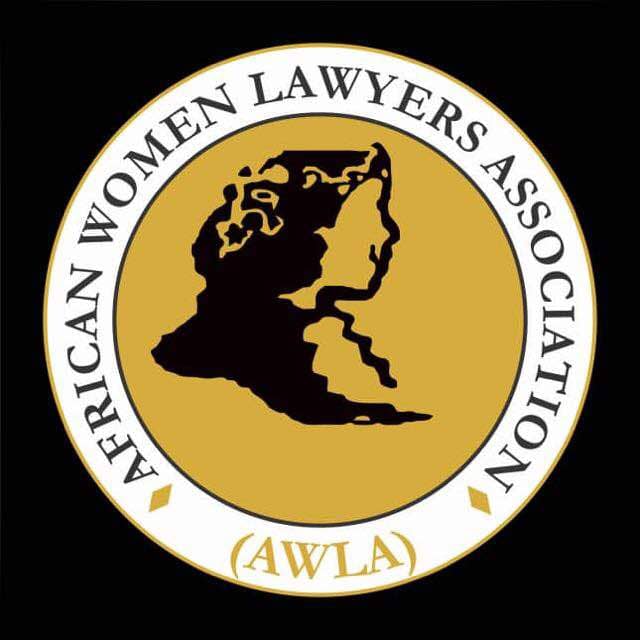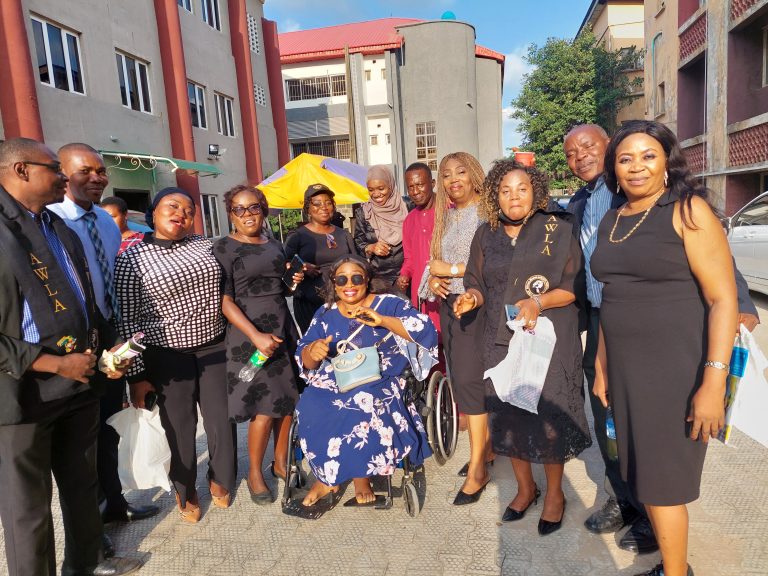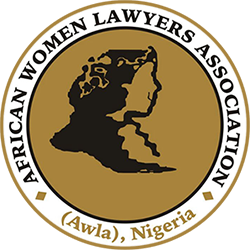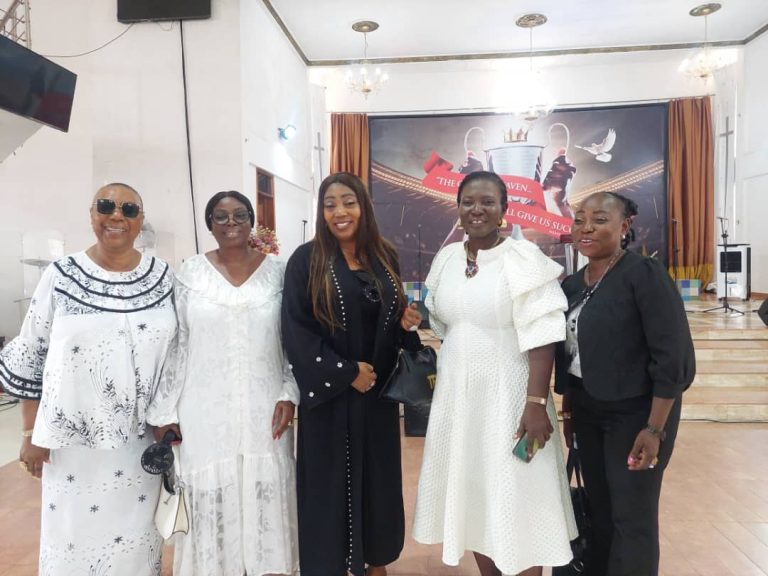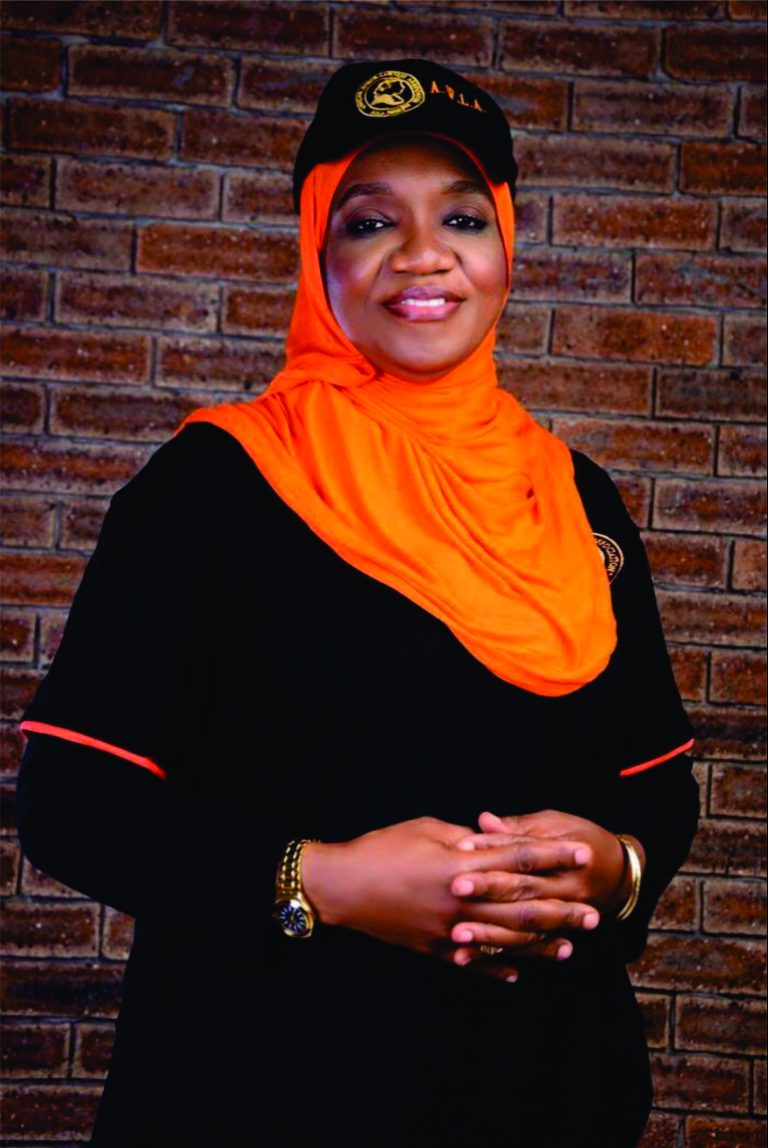The Rule of Law Expounded!!!
LEVERAGING EMERGING LEGAL CHALLENGES TO THE RULE OF LAW IN THE PREVAILING SOCIO-ECONOMIC REALITIES IN NIGERIA
BY
HON. JUSTICE ALABA OMOLAYE AJILEYE, PhD (Rtd)
BAZE UNVERSITY, ABUJA
BEING THE 9TH BADAGRY LAW LECTURE DELIVERED AT THE 9TH ANNUAL LAW WEEK OF THE BADAGRY BRANCH OF THE NIGERIAN BAR ASSOCIATION, HELD OF THURSDAY, 9/11/2023 AT THE NATIONAL POSTGRADUATE MEDICAL COLLEGE OF NIGERIA, IJANIKIN
Protocols
Appreciation
1. I would like to begin this lecture by respectfully acknowledging all the members of the Badagry Branch of the Nigerian Bar Association and pay my respects to the Elders of the Bar of the branch past, present and emerging. I pay tribute to the members of the EXCO of the branch, ably led by the Chairman, E. B. Oraku Esq. I salute members of the Law Week Planning Committee under the leadership of B. C. Okoro, Esq. I should also be permitted to acknowledge very fondly, my good friend, Lateef Kayode Arigbabuwo. I thank you all for this invitation.
Introduction
2. It is a privilege to speak at this 9th Law Week Program of the Badagry Bar on the topic “Leveraging Emerging Legal Challenges to the Rule of Law in the Prevailing Socio-Economic Realities in Nigeria.” The topic is scaled down in its form but expanded in its character to address a broad spectrum of the challenges to the rule of law in Nigeria. This is to discharge ourselves from unnecessary fetters that will hinder our discussion in limiting it to such challenges that the topic describes as “legal challenges.” Today we should reflect on some basic challenges to the rule of law that are emerging in Nigeria. Some of these challenges are obvious while some are not so obvious. In this lecture, we shall navigate into contemporary and current matters or prevailing issues relating to challenges to the rule of law. The word “emerging” suggests that our discussion should depart from the old and antiquated challenges and focus on challenges that are just appearing, The word “realities” in the topic must also not be ignored. Reality means, ”the state of things as they actually exist, as opposed to an idealistic or notional idea.” Issues to be discussed here will, therefore, be presented as they truly are. In this regard, within the space of time permitted, I have chosen to focus attention on five emerging challenges: corruption, gradual erosion of public trust in the Judiciary, the idea of regionalising justice, the mode of appointing judges, and the bad side of social media. Some of these reflect new ideas and new phenomena against the rule of law.
In the Beginning
3. Our discussion is about Nigeria. It is premised on the fact that all is not well with her. It is the postulation of a scholar that we cannot understand our lives and society unless we understand the reality that we live in, and we cannot understand the reality we live in unless we understand the original cause. In other words, the best way to appreciate the course of a river is to trace it to its source. The Yoruba native wisdom speaks about the load on the head of a cripple. He was told, “Amukun, eru e wo” (Cripple your load is bent and staggering). The cripple replies: “You only look up and not down.” The Holy Writ captures it in the following words, “if the foundation is faulty, what will the righteous do? It is expedient, therefore, that we begin our discussion from the beginning.
4. The origin of the Nigerian state can be traced to the 1861 treaty between King Dosunmu and the agents of her majesty the Queen of England in what is popularly known as the annexation of Lagos. The single entity called Nigeria became very clear after the 1914 amalgamation of the Northern and Southern Protectorates under the leadership of Lord Frederick Lugard. This is why the country has been described as a bizarre contraption. Lugard and other subsequent colonial administrators were able to administer Nigeria through the 1914 Nigerian Council, the 1922 Clifford Constitution, 1946 Richard Constitution, 1951 Macpherson Constitution and the 1954 Lyttleton Constitution.
5, The excesses of colonial leadership propelled series of agitations for an independent Nigerian state including the 1957 motion for independence. On October 1st 1960, Britain granted formal independence to Nigeria. The formal granting of independence opened a new chapter in the history of Nigeria, a chapter of bickering, recrimination, rivalry, and struggle for power amongst the three regions of North, East and West. This unhealthy competition brought about tension between early post-independent nationalists who were mere ethnic representatives rather than national leaders. So, the first problem that challenged Nigeria was the fact that her founding fathers did not believe in her project. Sectional and ethnic domination rather than socio-economic development of the Nigerian state became more important. Tafawa Balewa himself, as Prime Minister, referred to Nigeria as the mistake of 1914. For Chief Obafemi Awolowo, Nigeria is a mere geographical expression. Dr. Nnamdi Azikiwe, described Nigeria as a marriage of convenience. All these are proofs of “the visionary distortions” and political disagreement of Nigeria’s nationalists who were in control of the machinery of government. This ethno-tribal disposition or competitive communalism has prevailed and is manifesting in contemporary Nigeria’s politics and governance. For instance, an Igbo man or Hausa man or Yoruba man is first and foremost Igbo, Hausa, or Yoruba respectively, before he is a Nigerian. Political power or public office is first to the benefit of the holder and his ethnic nationals and cronies. Corruption remains on the rise, while nepotism, tribalism, ethnicity, and parochialism have become the directive principles of state policies. Nigeria, the giant of Africa, continues to crawl in the face of these vices and profanity.
6. President Bola Ahmed Tinubu was sworn into office on May 29, 2023, having won the February 2023 Presidential election. Nigeria continues to face many social and economic challenges that include insecurity such as banditry and kidnappings especially in the north-west region, continued insurgency by terrorist groups in the north-east, and separatist agitations in the south-east. The economy is in shambles. Naira is nose-diving at the capital market. President Tinubu has continuously pledged to turn around the economy and ensure security across the country. A period of barely six months may be considered too short to pronounce a verdict on a government and its head, nevertheless, the parameters on ground, so far, indicate one fact that is indisputable. At least, it can be said of him that we have a President who is in charge of the affairs of the nation that we can ultimately hold responsible for his actions or inactions. We now know that we have a President not just a presidency. Be that as it may, let us return to the core of the subject of our discussion – emerging challenges to the rule of law in Nigeria.
What is rule of law?
7. Our next task is to attempt to determine the meaning of the rule of law. An examination of this concept will be like a revision of a study of constitutional law class for you. I shall set out a little of its content. Let me start with what the rule of law is not. I want to avoid distilling the concept into one reductionist definition. Rule of law is not merely synonymous with the presumption of innocence in criminal trials; it goes much further than that. It is not merely rule by law; it requires more than abiding by the law. It is not rule by lawyers, nor is it law of the ruler, nor is it law and order. The rule of law is, at its essence, an overarching concept concerned with protection against the arbitrary exercise of power.
8. Rule of law is one concept that ‘’bestrides the whole world like a colossus’’. It engages the attention of jurists and philosophers both ancient and modern. It forms the theme of several writings by many eminent and not-so-eminent scholars. It is a familiar word amongst rulers, despots, military dictators, autocrats, democrats, and monarchs alike. The governor and the governed, the oppressor and the oppressed, the rich and the poor, all of us discuss and desire it.
9. Of all the basic sustaining features of a civilised society, rule of law stands out eminently tall. In nations where it has been allowed to blossom fully, it has withstood the test of time with results that have favoured the generality of the people with a cushioning effect. Where it is inhibited or subverted, the result is catastrophic. This explains why it must be admitted that the concept of rule of law is not something to be attended to by lip service and rhetorical orations. It is one theory that any nation worth its salt should pursue vigorously, scrupulously, and absolutely.
10. The rule of law, as a concept, is elaborated upon by some specific principles. These key principles are characteristic of a society where the rule of law is upheld. While there may be some divergence in agreement on the broader content of the overall concept, there is considerable overlap. Non-exhaustively, these principles include that:
a). No one, including government, is above the law, and the law should apply equally to persons in like circumstances.
b). There must be an independent, impartial judiciary, free from political pressure. As a corollary, there must be a separation of powers between the legislature, executive and judiciary. This works to constrain the exercise of power.
c. The content of the law should be accessible, and reasonably clear and consistent. The rights and duties of people in the community should be capable of objective determination.
d. Laws must be administered fairly, rationally, predictably, consistently and impartially.
e. Everyone must have a right to a fair trial, including the presumption of innocence. He should also have the benefit of procedural fairness.
f) . More important to me in this discussion is that, those in positions of power are equally subject to the law, and the public must trust that this is indeed the case. This is the basic framework we must keep in mind as we turn to look at some of the challenges facing the rule of law in Nigeria today.
Corruption
11. Corruption is rightly called one of the most insidious social phenomena. It is not a new phenomenon in Nigeria. It is as old as the country and remains the bane of the nation and one of the greatest obstacles to rule of law. It erodes trust in public institutions, hinders economic development and hampers access to justice, basic social rights such as healthcare, housing and education. The judiciary and law enforcement are among the institutions most affected by corruption. Corruption in law enforcement is particularly dangerous, as it has an impact on the safety of citizens and on their pursuit of justice, including cases of political corruption and police misconduct. We have seen how corruption appears to have prevented the investigation of serious financial crimes and prosecution of high-profile cases. We have heard it echoed, repeatedly, “if you join our political party, your sins will be forgiven.” We have seen the practical application of this heresy. We have seen judgments of courts defying rational legal principles and precedents. Inexplicably, we have seen judgments of courts conflicting and contradicting one another on principles that are well settled.
12. In fairness to Nigeria as a country, it has not relented in enacting laws against corruption, establishing institutions for combating corrupt practices, entering into international treaties, and adopting conventions and domesticating international protocols. The following anti-corruption enactments are extant: Money Laundering (Prevention and Prohibition) Act, 2022; Economic and Financial Crimes Commission (Establishment) Act 2004; Corrupt Practices and Other Related Offences Act, 2000; Criminal Code Act; and Penal Code. Similarly, the following institutions have also been established as positive steps towards combating corruption in Nigeria: Economic and Financial Crimes Commission (the “EFCC”); Independent Corrupt Practices Commission (the “ICPC”); Financial Intelligent Unit (FIU), Code of Conduct Bureau and Code of Conduct Tribunal,. As stated earlier, notwithstanding all these efforts, corruption remains unabated in Nigeria.
13. More worrisome is the impact of corruption on the administration of justice. Corruption in the justice system undermines its core values of fairness, equity, and impartiality. When judges and court officials are compromised, it results in the abuse of power, and the delivery of justice is compromised. Corruption in the justice system in Nigeria has resulted in the perversion of justice, wrongful convictions, and acquittals of guilty parties. Corruption in the justice system also creates an unequal justice system, where the rich and powerful can influence outcomes of cases in their favour. This has led to a sense of impunity among the elite, where they believe they can get away with any wrongdoing because they have the financial resources to influence the justice system.
14. Another impact of corruption lies with the administrative system of prosecuting matters. The prosecutors are not immune. They can easily be bribed, resulting in a failure to utilise their full potentials and skills in ensuring that justice is served. This also prevents individuals who ordinarily should bear the consequences of their corrupt and immoral actions from facing the full wrath of the law. These failures have led to a loss of public trust in the justice system. When the public perceives that the justice system is corrupt, they lose faith in it, and the rule of law is undermined. This leads to a situation where people resort to self-help, and the rule of law becomes meaningless.
Erosion of Public Trust in the Judiciary
15. Flowing from above, it is well known that in recent times, public trust or lack of it in the Judiciary has been the subject of renewed attention. The truth appears clear that public trust in the Judiciary is declining and has been shaken by a number of high-profile cases decided by the courts. As a result, the Judiciary is coming under greater scrutiny. You may or you may not believe this story, On Sunday 5/11/2023, I was still working of this paper, I took time off to attend church service in Lokoja. At the end of the service, the Chief Medical Director (CMD) of the Kogi State Hospitals Management Board, Dr Olayemi, and I exchanged greetings. In the course of a discussion that followed, the CMD asked a question that stunned me. He asked me to explain to him the rationale behind the decisions of the Supreme Court in Imo State Governorship case and Lawan case. He explained that in Imo State Governorship case, Uzodima scored the 4th position but the Supreme Court still went ahead to declare him the winner of the election based on the score sheet he presented to the court which INEC said it need not prepare. I was simply dazed!
16. Distinguished gentlemen of the Bar, whether we accept it or not, the truth remains that the public is watching what is going on in our courts and regularly and deeply questioning the rationale behind certain decisions, and rightly so. If there was ever a period where we expected the public to blindly trust the Judiciary, it is long gone. The trust necessary for the public to accept judicial decisions and court orders is fundamental to the rule of law. The Judiciary must continually ask itself, how and why did it allow things to degenerate to this level? This is because the Nigerian judiciary had undoubtedly enjoyed high levels of trust in the past. The judiciary must take this decline in public trust seriously. It cannot afford to be complacent. It is dangerous for it to assume that trust is ever-present. It must address this trust deficit.
17, The public should and must be able to trust in the individual judges and the judiciary as an institution which wields immense power on its behalf. As Alexander Hamilton famously said, unlike the executive and legislature, the judiciary “has no influence over either sword or the purse” and “may truly be said to have neither force nor will, but merely judgment”. Armed with only the power of judgment, the judiciary requires the legitimacy gained from public trust to function effectively to make rule of law blossom. The general acceptance of judicial decisions, by citizens and by governments is essential for peace, welfare good government and the rule of law. The corollary is also true. To distrust the judiciary is a ready recipe for anarchy. This is because citizens who trust the judiciary are more likely to engage with the legal system to address their legal issues and to co-operate with its processes.
Regionalising Justice?
18. Still on the issue of trust, His Lordship, Hon. Justice Dattijo Muhammad, JSC (Rtd), recently made a statement at his valedictory that raises a jurisprudential question on securing public trust and justice. I quote Him:
To ensure justice and transparency in presidential appeals from the lower court, all geo-political zones are required to participate in the hearing. It is, therefore, dangerous for democracy and equity for two entire regions to be left out in the decisions that will affect the generality of Nigerians.
19. The grouse of His Lordship here is that both the North Central and South East geo-political zones were not represented in the panel of Justices of the Supreme Court that decided appeals that arose from the Presidential Election Tribunal to the apex court recently. This he describes as “dangerous for democracy and equity.”
20. While the focus of His Lordship was on the absence of Justices from the North Central and South East geo-polical zones in the panel, it was easy for social media commentators to quickly draw attention to the fact that the South West geo-political zone that parades the Chief Justice of Nigeria and two other eminent Justices of the Supreme Court was also not represented in the panel. According to the commentators, it was also in order to ensure “transparency and equity.” The issue is neither here nor there.
21. My humble position here is, it is better that the Judiciary, including the Supreme Court, be perceived as a homogeneous entity that serves the interest of all. It is dangerous to the society to perceive justice from the prisms of tribes, religion, or geo-political divisions. Justice ought to remain an integral whole that does not admit of partition along tribal or geo-political bifurcation. It is also more dangerous if the impartiality of the Supreme Court is to wait for people to see the extent to which they have been represented by Justices who come from their geo-political zones.
22. Secondly, with due respect, to perceive justice from geo-political lines is to trivialise justice. Justice is far more important than that. If we accept the intrinsic worth of every human being, then justice becomes the minimum debt we owe to him, for if we deny him justice we have declared him worthless. The dispenser of justice should, therefore, be a person that is even-handed, blind to all social distinctions and disparities in wealth, religion, tribe, status and no respecter of persons, just as justice itself should be. If a nation cannot not look at their judges and see men and women who are upright enough to uphold the principle of the rule of law and do justice to all manner of people without fear or favour, affection or ill-will, then, I will simply say, that nation has lost it!
Appointment of Judges
23. There has been a loud sound of late of the quality of judgments emanating from our courts. Commentators have drawn correlation between the low quality of judgments and the competence of judges that has a direct bearing with rule of law. The process of recruitment of judges has been found to be faulty. Hon. Justice Dattijo Muhammad, (Rtd) brought this issue into the front-burner of public discourse recently when, in his valedictory speech, few weeks ago, he declared:
A couple of years ago, appointment to the bench was strictly on merit. Sound knowledge of the law, integrity, honour, and hard work distinguished those who were elevated. Lobbying was unheard of. I never lobbied, not at any stage of my career, to secure any appointment or elevation. As much as possible, the most qualified men and women were appointed. That can no longer be said about appointments to the bench. The judiciary must be uniquely above board. Appointments should not be polluted by political, selfish, and sectional interests. The place of merit, it must be urged, cannot be over-emphasized.
24. At my own valedictory, I also touched on it in my own little way. I shall quote and adopt what I said there:
The process of appointment of judicial officers in Nigeria requires some attention here because it is of paramount importance to the administration of justice. I will be unfair to my conscience and the legal profession in Nigeria if I fail to share my knowledge and experience on this aspect. If the truth is to be told, we must admit that there is something faulty at the moment in the process of appointment to the Nigerian Bench.
Without any form of equivocation, I say here that I have seen four evils associated with the process. The first evil that I see is that there is no transparency in the process. The process is shrouded in secrecy and clandestineness. Another evil is that recommendations of Honourable Judges and Honourable Justices don’t count. The act of calling for recommendations looks to me like a ritual, exercised merely to fulfil all righteousness. Those who would be appointed would still be appointed with or without recommendations. The number of recommendations a candidate receives guarantees nothing for him. The third evil I have seen is that the person a candidate knows matters a lot. And that person must carry a lot of “weight.” The fourth evil is that the place where you come from also counts. In the Nigerian parlance, it is called federal character or quota system.
There is nothing evil on the face of the principle of federal character. What is evil in it is the way the principle is applied by the functionaries of government. This underscores the point that it is the human being that makes or mars an institution.
The direct effect of these four evils is that merit, in most cases, does not count in the process of appointment of judicial officers. I assert here, without any equivocation, that if Nigeria gets it right with the process of appointment of judicial officers, it will surely be well with the Judiciary.
A comparative analysis of what the situation was in the past and what it is today is expedient here. We have seen the immense glory of the Nigerian Judiciary in the past when the institution was a great pride to ordinary citizens. Judgments of courts were predictable and adorned with philosophical pontifications. Judgments of Nigerian courts were quoted as authorities in other African countries with piquancy. The Nigerian Judiciary, at the apogee of its glory, withstood the tyranny of the military, armed with guns but, regrettably, has fallen flat before the majestic politicians, armed with Dollars and Naira. It was a healthy judicial system in the days of yore, with a reputation for integrity and competence. This was mainly attributable to a fair system of appointment of judges in the superior judiciary wherein appointments were generally made on merit alone. The puzzling question here is, at what point did we get it wrong?
The iconic Chief Afe Babalola, SAN gave an insight into the situation with the past in an online version of Vanguard newspaper of June 3, 2021 had this to say:
In the sixties when I began the practice of Law, appointment to the Bench was strictly on merit. At that time, appointments were by invitation, after, at least, 10 years in practice. Sitting Judges were always quick to identify legal practitioners who possessed sterling qualities suitable for appointment to the Bench. Aside from sound knowledge of the law, integrity and honour marked out and propelled many Judges appointed in those days to the Bench. However, this was made possible by the 1963 Constitution which was in force at the time… Though this procedure seems simple, it was yet effective and notorious for producing the most qualified and best-suited judges on the Bench. This system effectively obviated a recourse to political affiliation, nepotism or favouritism in the appointment of judges which, no doubt, has characterised the appointment mechanism today. Undoubtedly, the provision of the 1999 Constitution as to the appointment of Judges and Justices deeply encourages the politicisation of this hallowed position.
25. I will only add here by way of adaptation of my earlier statement in the quote that if Nigeria gets it right with appointment of judges, it shall be well with the rule of law.
Social Media Platforms
26. Shifting the focus now, it would be remiss of me to speak about emerging legal challenges to the rule of law in the prevailing modern realities in Nigeria without a discussion on the evils of social media and their challenges to the rule of law. Social media have become more central to people’s lives than ever. They have also become very dangerous. Regrettably, people are increasingly getting their news from social media platforms rather than directly from traditional media sources.
27. The first major concern here is the utilisation of social media for “trials.” One of the fundamental principles of the rule of law is the presumption of innocence until proven guilty. Media trials continue to feature on social media platforms. They sometimes create an environment where a person is already presumed guilty in the court of public opinion. An individual may, consequently, have his privacy and reputation damaged by media coverage, even if he is eventually found not guilty. This can have long-lasting and irreversible consequences.
28. Another concern is “fake news” problem. Social media is a relatively easy forum for this, as they provide platforms where content can be posted more or less indiscriminately and anonymously. One of the serious challenges associated with fake news is the role it has in undermining the two-sided nature of the rule of law covenant. This may be done inadvertently, but more concerning is that invariably, it may be done maliciously.
29. Conspiracy theories are one example of the challenge of social media to the rule of law. Earlier this year, a conspiracy theory got major traction on social media that Hon. Justice Justice Boloukuoromo Moses Ugo, JCA had resigned his appointment as a member Presidential Election Petition Tribunal (PEPT) and tendered his letter of retirement from service as a judicial officer. In some cases, social media platforms are used to intimidate Judges. These are not light or inconsequential issues. At the risk of sounding alarmist, I must say here that we cannot afford to be complacent about these things. The judiciary and the legal profession must be alert to specific threats which can affect public confidence in the rule of law.
CONCLUSION
30, To conclude, let me say here that it is not just judges who must be alert to challenges to the rule of law. Lawyers also have a vital role in maintaining public confidence in institutions by communicating the law clearly and ensuring that cases are brought fairly and on their merits in accordance with law. The judiciary, like all public institutions, must be alert to the decline in public trust. The Judiciary cannot afford to be complacent about the levels and uniformity of trust by the public. The legitimacy of the judiciary, and in turn, the courts, rests upon diffuse trust by the public. Anything less is insufficient. Trust by the public in the judiciary cannot be demanded. It must be earned in how it functions and importantly, appear to function. For people to trust in the judiciary, every judge, and the judiciary as a whole, must be more than simply competent. The judiciary must, individually and collectively, uphold the highest standards of integrity. The judiciary must continually re-evaluate how it can strengthen trust across all sections of the community. This is not just a responsibility for the judiciary as an institution. Each and every judge must strive to build trust where it is lacking and strengthen trust where it exists. Perhaps a small way to do it will be for every judge to reaffirm his or her commitment to try, and ensure every litigant who leaves the courtroom, regardless of whether he wins, or loses feels that he has had a fair deal. In this way, the interest of the rule of law will be well served.
Thank you for listening!

